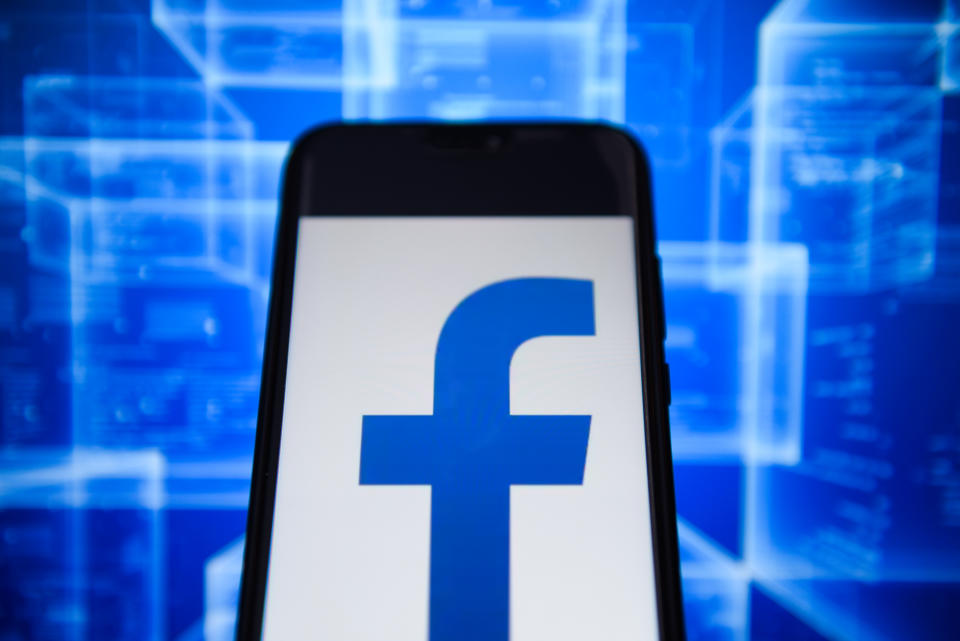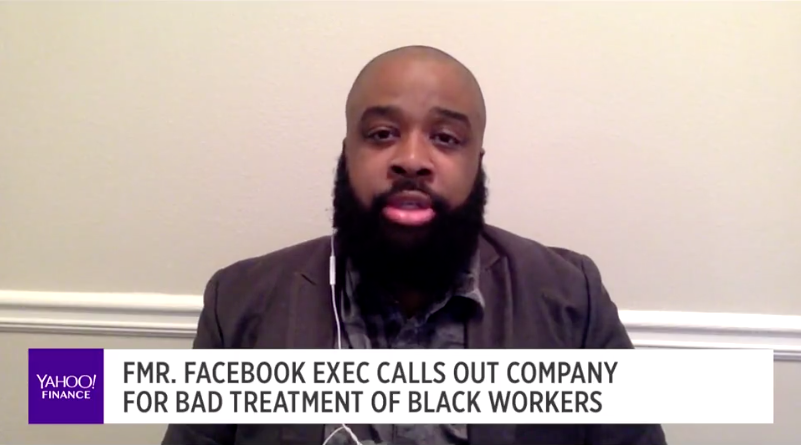Silicon Valley’s racism problem is bigger than Facebook
When former Facebook manager Mark Luckie published a Facebook post earlier this week asserting the social network has a “black people problem,” he rocked the public’s already shaky perception of Facebook. But as unfortunate as Luckie’s allegations are, racial bias in the tech industry is not isolated to Facebook, according to diversity statistics and a recent Pew Survey.
‘No one is doing the hard work’

Many big tech companies like to crow about their diversity and inclusion efforts, which include hiring chief diversity officers, disclosing diversity goals, using diversity-recruitment tools and offering courses that reduce bias. Indeed, executives including Apple CEO Tim Cook, Microsoft CEO Satya Nadella and Salesforce CEO Marc Benioff have all emphasized the importance of diversity and inclusion in the workplace for marginalized communities.
“It obviously starts by having a workforce that is diverse, but inclusion is a cultural piece that we all have to work on everyday,” the India-born Nadella told students at New York University’s Tandon School of Engineering and the Stern School of Business in 2017, adding that inclusion “shows up in every meeting, starting with me.”
The numbers paint a grim picture, though. In general, 83% of tech executives are white, with the overwhelming majority of those white executives being male, according to the U.S. Equal Employment Opportunity Commission. African Americans and Hispanic employees each account for fewer than 6% of all employees at companies including Facebook, Microsoft, and Twitter (TWTR). And in Uber’s case, the percentage of African Americans in its workforce actually declined from 8.8% to 8.1% year-over-year.
“No one is doing the hard work — everyone wants to do the easy work,” contends Leslie Miley, an African American engineer and former CTO of the Obama Foundation, who has held prominent engineering roles at Apple (AAPL), Google (GOOG, GOOGL), Twitter and Slack. “There are some places that are doing it, but by and large, I don’t think a lot of companies are doing it, because it’s challenging to people. It’s challenging to have someone tell you to your face a company that you may love, that you’re putting a lot of work in, that this company has a ‘black problem,’ that this company has ‘anti-blackness’ just running through it.”
According to a study published by the Pew Research Center in January, 62% of black workers surveyed in science, technology, engineering and mathematics (STEM) roles said they had experienced discrimination at work due to their race, while 50% of black workers in non-STEM workers reported similar experiences.
Meanwhile, nearly 40% of black STEM workers and 36% of black non-STEM workers said their race has made job success harder because of resulting treatment from coworkers. Respondents gave examples of how their race leads to coworkers making assumptions about their competency or automatically associating them with negative stereotypes.
Racial ‘microaggressions’ in the tech industry
Miley’s experience in tech reflects the experiences of some of those surveyed by Pew.
At one major Silicon Valley tech company he declined to name, Miley was reprimanded in a written memo by management for his diversity hiring efforts, he said. However, he says, his managers had initially encouraged him to increase his efforts on that front.
The rationale for the reprimand? Some employees said the Human Resources-approved language he uttered in a company meeting made him appear as though he was biased against certain groups and that made some people uncomfortable, according to Miley. (The language he used: “We need to really concentrate on women, people of color and specifically, women of color because they’re underrepresented.”)
“I was actually told that I was ignoring qualified white people,” Miley recalled.
In Luckie’s Facebook post, the former Facebook manager outlined Facebook’s shortcomings as a work culture and as a platform for the black community to communicate. During his 14-month stint working for Facebook, Luckie experienced many moments of racial discrimination making him feel like an “oddity” in the workplace, he said. One example he gave: people tightly clutching their wallets as he walked by. He also complained about content posted by members of the black community on Facebook, which continue to be reported by non-black people and taken down, despite the content adhering to Facebook’s terms of service.

“I’d posted it [the memo] internally, because I was getting so much information from black employees — one-on-one conversations, group conversations — saying, ‘I’m going through this problem,'” Luckie told Yahoo Finance anchor Jen Rogers on Wednesday. “I’m having an issue with my manager because I’m black. I am encountering security problems. I thought that in leaving, I thought that I had an opportunity to share that information: to say, ‘OK, this is a problem.’ Black employees, you’re not just going through it yourself.”
Luckie has said he plans on leaving the tech industry entirely after his negative experiences at Facebook to focus on rebuilding his life and developing a recently launched podcast.
Over the years, Miley has also experienced racial microaggressions similar to those Luckie described: short comments or actions that express a prejudiced attitude towards a member of a marginalized group.
“I’ve walked through tech parking lots and heard [car] doors lock behind me, as I’m walking,” says Miley. “I get challenged for badges more often than other people, and I’m trying to get into a cafe or something like that. Nowadays, I actually tell them, ‘Why are you only asking me?’”
How tech can be more inclusive
Luckie himself offered a number of recommendations for how Facebook could improve its “relationship with diverse communities,” including integrating a diversity-focused strategic plan into a team’s overall goals, creating internal systems for employees to report microaggressions, deploying data-driven goals for partnerships, product testing, and client support, representative of Facebook’s demographics.
For his part, Miley contends companies and their management must step up. Executives and managers must be held accountable for shortcomings around diversity and inclusion efforts, he said. It’s not enough to deploy solutions that require hiring managers to consider a minority candidate or offer a course on managing unconscious bias, according to Miley. Rather, companies should get to the root causes of racial discrimination and offer solutions that fundamentally change how people view themselves and how they view race, ethnicity, and gender.
It’s a sentiment Luckie somewhat reiterated during his interview with Yahoo Finance on Wednesday.
The criticism lobbed towards Facebook may come as a surprise. Despite a year rife with scandal, the social network has consistently ranked high on lists of best places to work. The social network topped Glassdoor’s “100 Best Place to Work in 2018” list, for instance, which Glassdoor CEO Robert Hohman at the time attributed to the company’s mission-driven culture, transparency leadership and wide cultural impact. That said, it’s clearly not the best workplace for everybody.
“You know, they [companies] love going to Glassdoor and saying they’re the best company this or the highest that, but how are you holding your personalized managers accountable?” argues Miley. “How are you holding your director or your VP accountable?”
Facebook, for its, part, told Yahoo Finance in a statement it will continue to do all it can do to be a “truly inclusive” company.
“Over the last few years, we’ve been working diligently to increase the range of perspectives among those who build our products and serve the people who use them throughout the world?” said Anthony Harrison, a Facebook spokesperson. “The growth in representation of people from more diverse groups, working in many different functions across the company, is a key driver of our ability to succeed. We want to fully support all employees when there are issues reported and when there may be micro-behaviors that add up.”
Still, if there’s anything to be gleaned from Luckie’s post, it’s that Silicon Valley companies like Facebook must try harder.
—
JP Mangalindan is the Chief Tech Correspondent for Yahoo Finance covering the intersection of tech and business. Email story tips and musings to [email protected]. Follow him on Twitter or Facebook.
More from JP:
